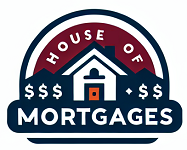Comparing Fixed and Variable Rates for Remortgaging Online
Remortgaging is a process where a homeowner switches their current mortgage to a new deal, either with their existing lender or a new one. One of the key decisions to make when remortgaging is whether to go for a fixed rate or a variable rate mortgage. With the rise of online platforms for comparing mortgages and getting financing advice, homeowners now have more options than ever before. In this article, we will explore the differences between fixed and variable rates for remortgaging online.
Fixed Rate Mortgages
A fixed rate mortgage is a type of mortgage where the interest rate remains the same for a set period of time, typically between 2 to 5 years. This means that your monthly payments will also remain the same during this period, providing stability and predictability in your budget. Fixed rate mortgages are popular among homeowners who prefer to know exactly how much they will be paying each month and want to protect themselves against potential interest rate increases.
One of the main advantages of a fixed rate mortgage is that it protects you from fluctuations in interest rates. If interest rates rise, your mortgage payments will not increase, giving you peace of mind and stability. However, the downside is that if interest rates fall, you will not benefit from lower mortgage payments unless you remortgage to a new deal.
When comparing fixed rate mortgages online, it is important to consider the length of the fixed term, as well as any fees or charges associated with the deal. Some fixed rate mortgages come with early repayment charges if you want to switch to a new deal before the fixed term ends, so it is essential to read the terms and conditions carefully before making a decision.
Variable Rate Mortgages
A variable rate mortgage is a type of mortgage where the interest rate can fluctuate during the term of the loan. There are two main types of variable rate mortgages: tracker mortgages, which track the Bank of England base rate, and standard variable rate mortgages, which are set by the lender.
The main advantage of a variable rate mortgage is that you could benefit from lower interest rates if the base rate falls. This means that your monthly mortgage payments could go down, saving you money in the long run. However, the downside is that your payments could also go up if interest rates rise, making it harder to budget and plan for the future.
When comparing variable rate mortgages online, it is important to consider the margin above the base rate that the lender charges, as well as any cap or collar restrictions on how much the interest rate can change. Variable rate mortgages often come with lower initial rates compared to fixed rate mortgages, but the risk of interest rate fluctuations should be carefully considered before making a decision.
Online Platforms for Comparing Mortgages
With the rise of online platforms for comparing mortgages and getting financing advice, homeowners now have more options than ever before. These platforms allow you to compare a wide range of mortgage deals from different lenders, making it easier to find the best deal for your individual circumstances.
When using an online platform to compare fixed and variable rate mortgages, it is important to input accurate information about your financial situation, including your income, expenses, and credit score. This will help the platform generate tailored quotes that are relevant to your needs and preferences.
Some online platforms also offer free tools and calculators to help you estimate how much you could borrow, how much your monthly payments will be, and how much you could save by remortgaging to a new deal. These tools can be invaluable in helping you make an informed decision about which type of mortgage is right for you.
Conclusion
When remortgaging online, it is important to carefully consider the differences between fixed and variable rate mortgages. Fixed rate mortgages provide stability and predictability in your monthly payments, while variable rate mortgages offer the potential for lower rates but come with the risk of interest rate fluctuations.
By using online platforms for comparing mortgages and getting financing advice, homeowners can access a wide range of mortgage deals and find the best option for their individual circumstances. Whether you choose a fixed rate or variable rate mortgage, make sure to read the terms and conditions carefully and consider any fees or charges associated with the deal.
Ultimately, the decision between fixed and variable rate mortgages will depend on your personal preferences, financial goals, and attitude towards risk. By taking the time to compare different options online, you can make an informed decision that will benefit you in the long run.

leave a comment